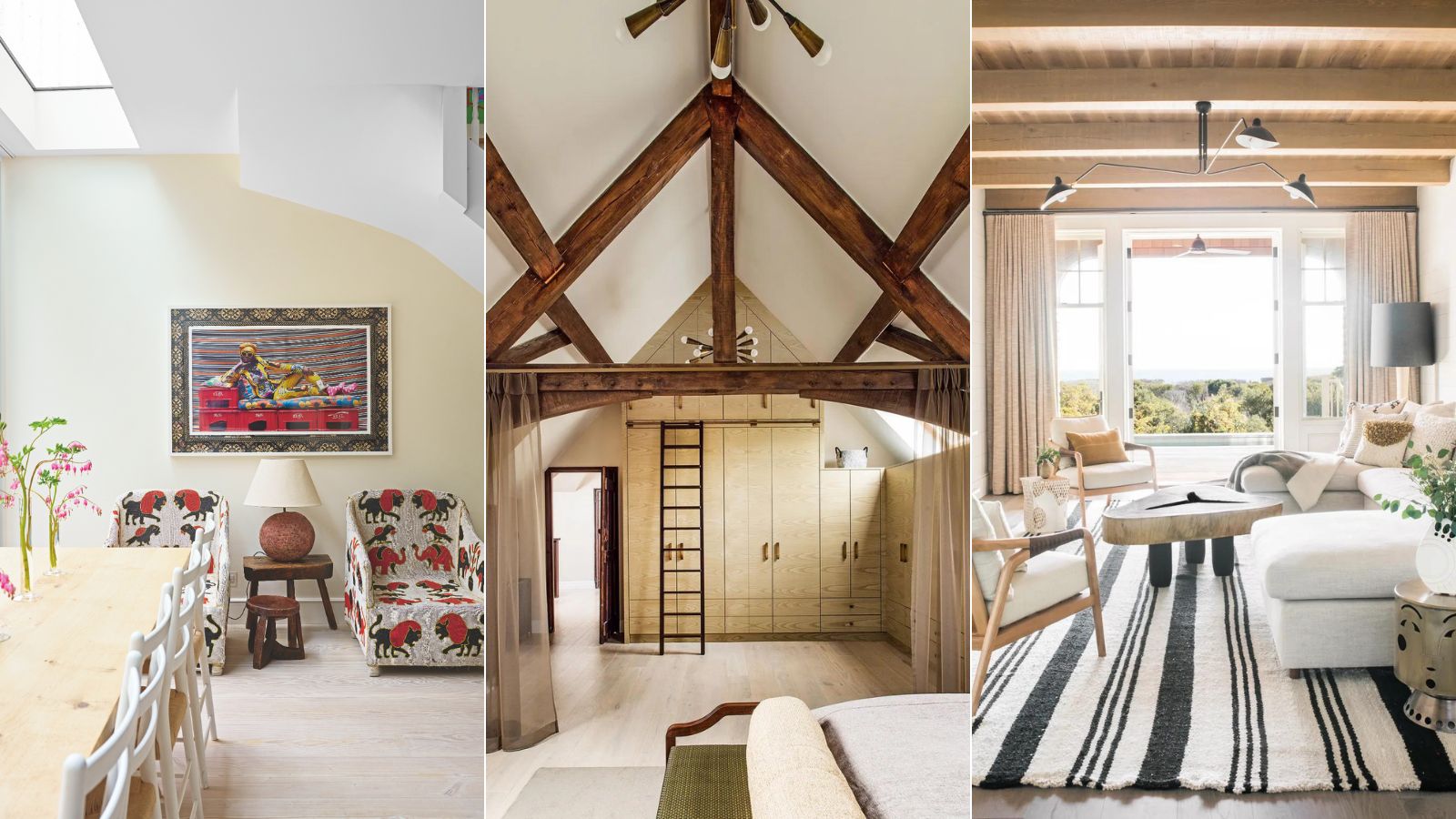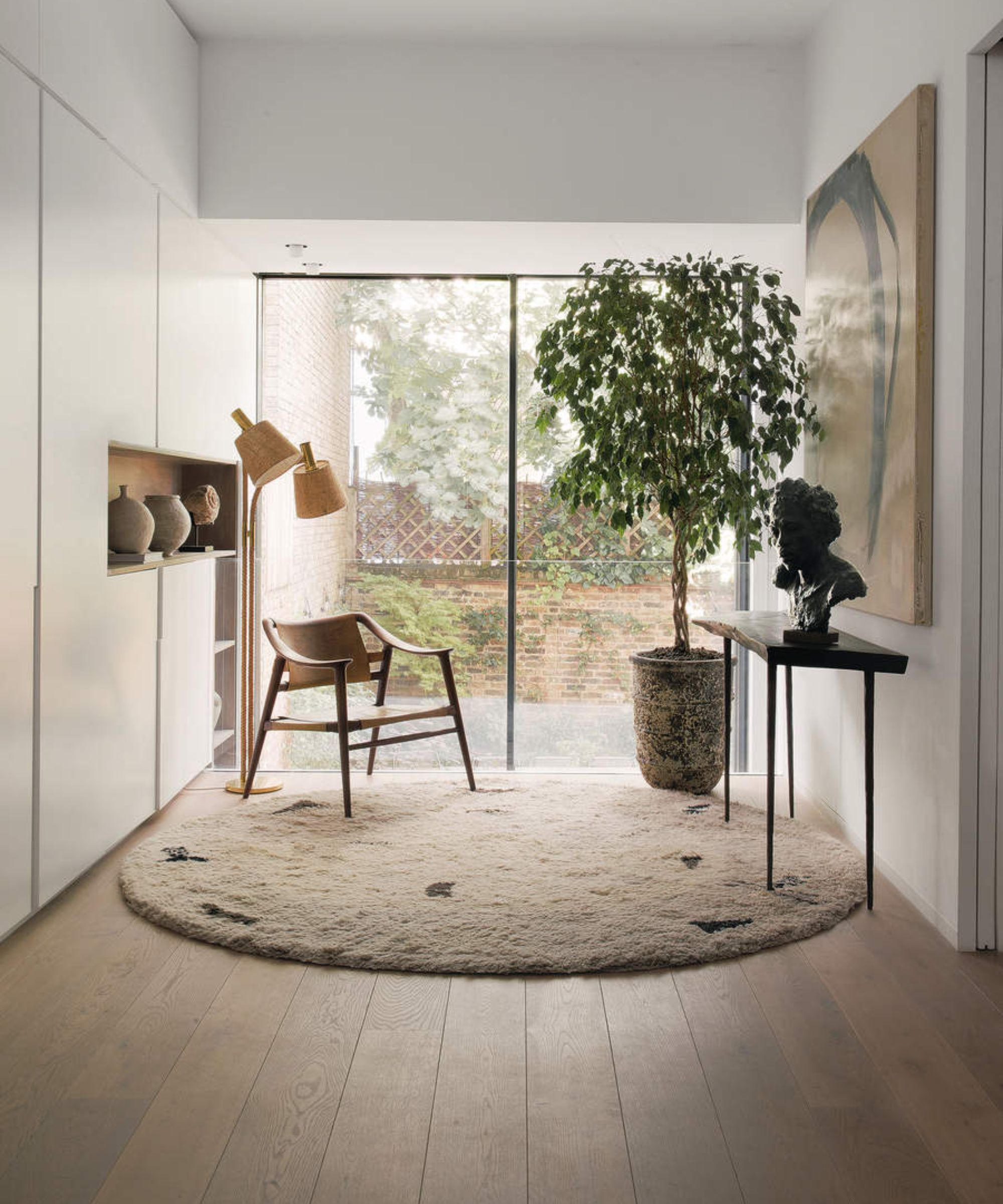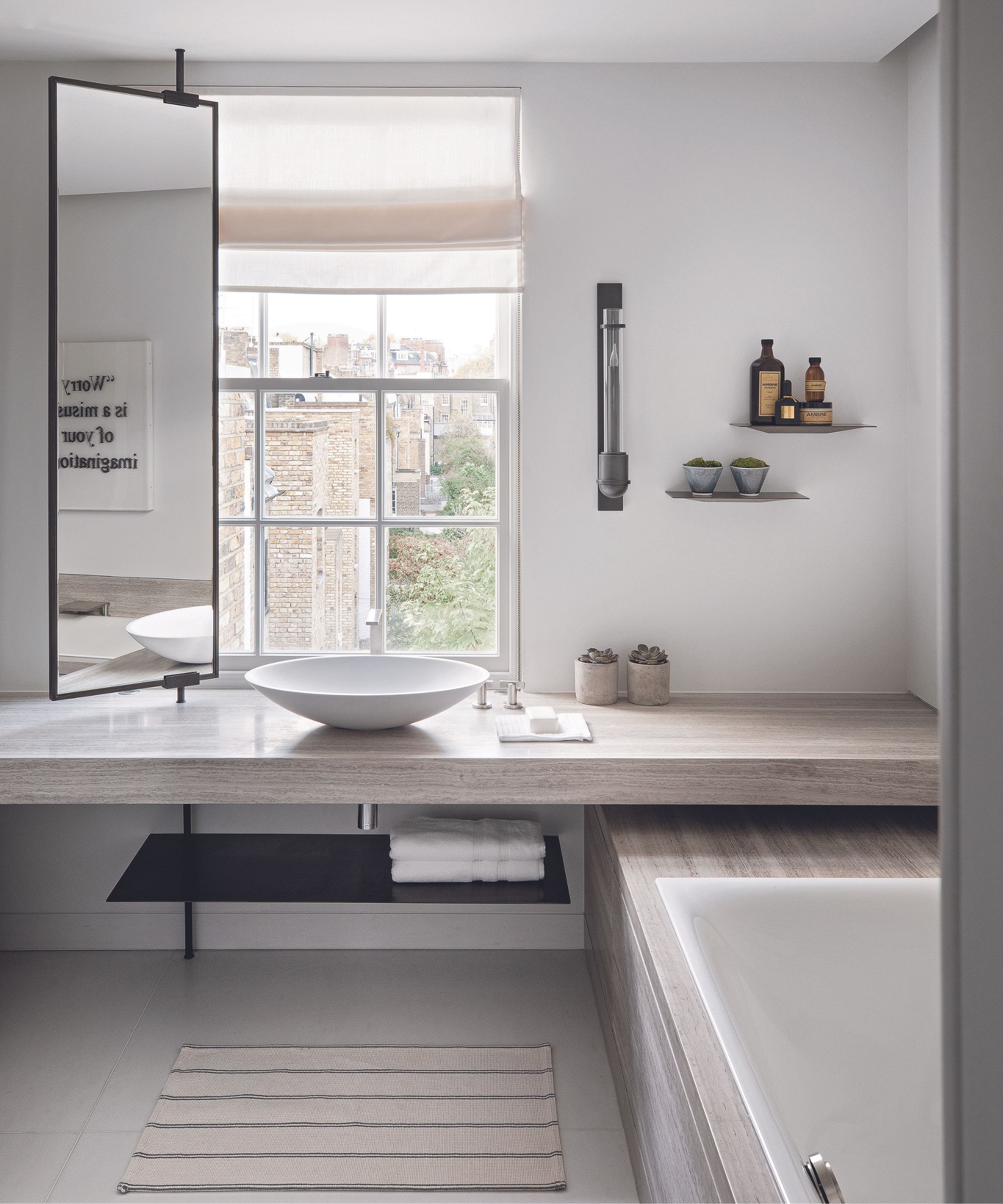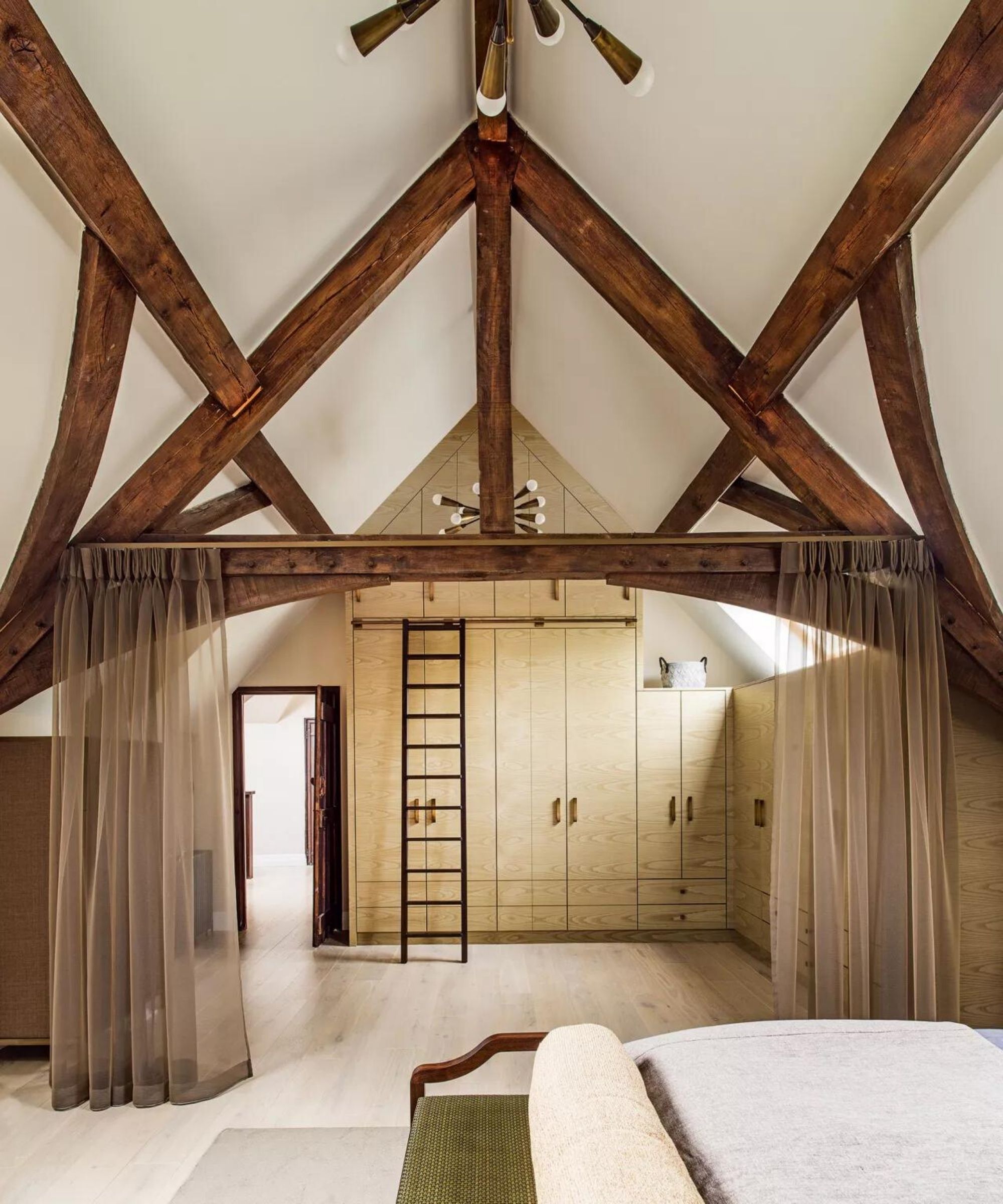
I’ve been using Feng Shui since my early 20s, which is now (gulp) over 30 years ago. It’s been a part of every home I've lived in, and along the way I’ve learned, tested, and challenged the various theories and disciplines until I found the one that made the greatest and most positive impact on our lives.
For me, having a happy, healthy home is essential to my well-being. I want comfort, stability, and a place where I can be myself. It must ‘feel’ right, and when I come home it’s as though I’m enveloped in a loving, safe, and inspirational hug. I believe that’s the essence of how ‘home’ could and should be.
However, in some homes, there is a disconnect. Home isn’t a sanctuary, or even a pleasure to spend time in. In these spaces, occupants would rather be at work or almost anywhere else, than heading home. It can feel as though life is fighting against you and throws one obstacle after another in the way of happiness and health. Which is why I found Feng Shui in the first place. Something was ‘out of whack’ with the new place we had moved into, and I wanted to put it right.
Things Feng Shui experts wish you knew
In this article, I want to tell you what I’ve learned along the way, what worked and what didn’t, and how by making some really simple changes, you can become friends with your home and receive the energetic support you deserve.
1. Traditional Feng Shui is more science than ‘woo’

Far from being ‘hokum' or 'woo woo’, Feng Shui is a science based on geography, astronomy, history, and metaphysics which has been used by the elite and ruling classes for thousands of years to understand the nature and energetic forces present in a building or location.
While modern-day scientists are beginning to understand the incredible untapped resource working with the earth’s quantum energetic field presents, ancient Feng Shui masters were already using it to predict the way energy would flow in a property and how it could be activated or suppressed to the benefit of the occupants.
By tapping into knowledge passed down through millennia, current Feng Shui practitioners continue to use the traditional methods to identify the energy present in a home and give the occupants the tools to harness or negate it.
2. Who uses Feng Shuit and why?
I mentioned that Feng Shui was the preserve of the wealthy and influential. That remained the case until the late 1960s/1970s when Feng Shui became accessible to everyone, and a very simple form, based on the position of the front door was devised to support the rise of ‘new age’ thinking.
Fast forward to the current century and we still see Feng Shui in use to increase the success and power of individuals and businesses. Oprah Winfrey, George Clooney, Victoria Beckham, and Georgina Rodrigues are on record as using Feng Shui to enhance lifestyle, relationships, achievements, and inevitably, wealth.
As Oprah says: 'Employing Feng Shui tips can help you get out of your own way to find what it is you are really meant to do. And once you discover this, the pieces will fall into place. Other people have found their calling, but their environment is not in alignment with that purpose, Feng Shui can help with that too.'
Essentially, it’s all about having your home enhance your life rather than working against you. The great thing is that Feng Shui energy is available to everyone – not just the super-wealthy.
3. Traditional Compass or Western Feng Shui
I’ve trained in both Traditional Compass and Western Feng Shui methods over the years. For a while, I used the DIY ‘Western’ BTB version in a way that was reasonably successful for years; but when I relocated to an apartment, it just stopped doing what it was supposed to do. Our luck changed overnight.
In desperation, I got a traditional compass report done. This involved changing my thinking and revising all I had previously learned. I had never heard of ‘house types’ or considered the various ways energy might access a building. It was all new, but I installed the recommended remedies and to say the Feng Shui supercharged our lives would be a total understatement. Life just took off and I realized I’d only scratched the surface using ‘Western’ Feng Shui.
4. What is a ‘House Type’

By understanding which of the four house types you are living in, the personal, financial and health situations you experience start to make sense, which means you can take steps to rebalance the energy and start looking forward.
In the simplest terms, the phrase ‘house type’ defines the life experience of the occupants of the building. For example, homes where divorce has occurred are more prone to it happening again.
These are the four basic house types:
- Good for money and people – this tends to be a happy, healthy, and financially comfortable home to live in. The ‘lucky’ house on the street.
- Good for money but bad for people – Money will flow, but relationships and health can be compromised. It’s where you’ll find the high net-worth divorces and regular illness, but there is always money to ease the pressure.
- Bad for money but good for people – Regardless of income, there is never enough money in this home. Despite financial challenges, the owners tend to be happy and reasonably healthy.
- Bad for money and bad for people – A real challenge to live in, with stress and pressure on both relationships and finances.
Knowing nothing of house types, I inadvertently moved into an apartment that was bad for both people and money and until we remedied it, life, frankly, wasn’t much fun. But that’s the wonderful thing about Feng Shui, you can fix it and upgrade your fortunes along the way.
What you can do today: Consider how your relationships and finances have been since you moved into your current home and identify which house type you might be living in.
5. It’s not about moving furniture
I think people get hung up on Feng Shui furniture arrangements, such as having a sofa pointing in the right direction or hanging windchimes by the door. That’s a misunderstanding because what really matters is getting a positive flow and circulation of energy through a building. Yes, if something is creating an energetic blockage we might rethink the space, but in reality, a modern Feng Shui professional will work with the home, furniture, and individuals to maximize the positive energy.
What you can do today: Walk through your home and notice if anything gets in your way. If it’s blocking your smooth passage, it could be disrupting or stagnating the energy in your home. Oh, and please remove windchimes from your home – they can do more harm than good.
6. Clutter is harming your wellbeing

I often say Feng Shui magnifies what’s around it – so if you already have happiness and success, activating Feng Shui will bring you more in abundance. However, if the space is cluttered and feels rather neglected, it pays to deal with that effectively rather than generate more of the ‘unloved’ sensation.
Interiors Therapy is magnificent for going below the surface to reveal the impact of specific possessions including art, and inherited or unused items which might be causing angst for their owners at a subconscious level, but would never be considered ‘clutter’.
The concept of Feng Shui is that each area of a home relates to a specific aspect of life:
Southwest – Relationships
Southeast - Money
North – Career
East – Family
South – Reputation
West – New beginnings
Northeast – Learning
Northwest – Travel and Helpful People
What you can do today: Identifying where clutter, mess, rooms of doom, and overstuffed attic spaces are situated in relation to the compass often explains the pressure on certain parts of your life. Decluttering and rethinking these spaces can open up new opportunities and a welcome boost of vibrancy.
7. Feng Shui and Home Maintenance
Plumbing issues like dripping taps, leaks, and blockages often reflect and amplify financial problems while glitches with the electrics show up as burn-out, anxiety, and mental health issues. That’s why it always makes sense to get them fixed straight away.
What you can do today: Make a list of any home maintenance tasks required in your home, and sort it out.
8. Feng shui can improve communication and connection for couples

The fabulous thing about Feng Shui is that it brings clarity of thought and an increased sense of confidence in communicating desires, needs, and goals. For a couple who have been struggling, it can revitalize the relationship, so they fall in love all over again. However, if the relationship has run its course, Feng Shui will open the way to moving on with respect and dignity in the best interests of all concerned.
What you can do today: Be honest with yourself about the situation and make a conscious decision to improve communication.
9. Using the energy of a home positively supports everyone
From newborns to great-grandparents, everyone in the home will benefit from the positive energy that comes with Feng Shui. Using it wisely can lift the gloom and angst for teenagers, and provide a new sense of purpose and feelings of contentment for all generations.
What you can do today: Identify your personal goals, dreams, and aspirations for the future and write them in a ‘love letter’ to your home. Use positive phrasing (no don’ts, can’ts, nots or won’ts) to express words from your heart. Put the letter in an envelope and tuck it away in the western area of your home.
10. A balanced home feels better to live in
Sometimes change for the better is dramatic with overnight success, windfalls, or meeting ‘the one’. Most of the time it happens more gradually, with a series of gentle steps towards a happier, healthier lifestyle. It’s only when you look back and realize how much has improved, or friends notice the difference in you, that the initial investment in feng shui becomes the best time and money you ever spent.
What you can do today: Look at your bedroom and assess whether it feels balanced and welcoming.
As with anything that matters, you get back what you put in. Fully activating the unique elemental remedies (earth, water, wood, fire or metal) required within your home is the best way to reap the benefits and enjoy the sense of alignment and connection that goes far beyond the home. Paying lip service by putting a kitsch frog or windchimes by the door will make no difference at all.
What you can do today: Ditch the kitsch and anything you don’t like so you can focus the energy of your home on things that truly represent the life you want for yourself. Start a gratitude practice and recognize all of the wonderful aspects already present in your life and home.







